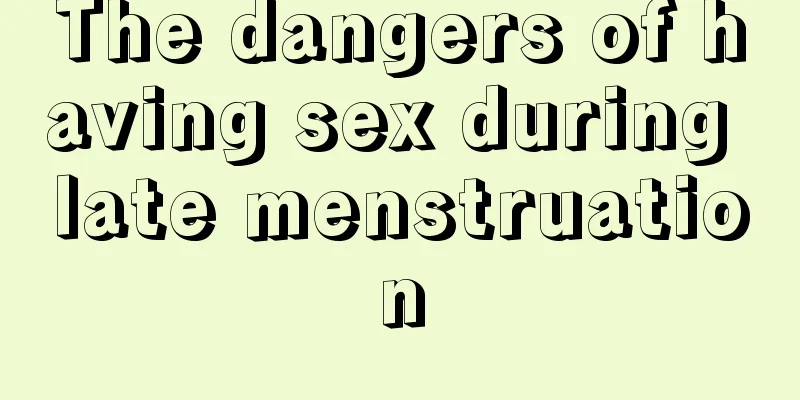How to treat frequent urination and lower abdominal pain

|
Frequent urination, urgency and lower abdominal pain are the most typical symptoms of urinary tract infection. I believe many of my friends are very clear about this. If the urinary tract infection is not treated in time, it will lead to systemic diseases. Once the scope of inflammation expands, it will cause serious harm to the patient's body. For this reason, this article will analyze how to treat frequent urination, urgency and lower abdominal pain caused by urinary tract infection to help patients get rid of the disease as soon as possible. Specific treatment methods are as follows: (1) Thorough treatment: Patients who have been diagnosed with urinary tract infection must take adequate medication over a sufficient course of treatment and should not take the disease lightly. If treatment is discontinued or medication is stopped prematurely, the disease may become chronic and not healed. Generally, after the symptoms disappear completely and the urine test returns to normal, the medication should be continued for 3-5 days. After stopping the medication, the urine should be checked once a week. Only when no abnormalities are found for more than 3 consecutive times can it be considered basically cured. (2) Find the cause of chronic disease: Chronic patients should find out the reasons for prolonged illness, such as whether there is urinary tract obstruction or other infectious diseases, especially infectious diseases at the urethral opening; whether there are chronic wasting diseases that reduce the body's resistance, such as diabetes, liver disease, tumors, tuberculosis, other kidney diseases, etc.; whether they have been taking immunosuppressive drugs such as prednisone, Kunming begonia, penicillamine and anti-tumor drugs in recent times; whether they have violated the doctor's orders and used the medicine irregularly, etc. (3) Long-term follow-up observation: The complete cure of chronic urinary tract infection is a long-term process and should be followed up and observed. If symptoms reappear within 6-9 weeks after stopping the medication, it should be regarded as reinfection or recurrence of the original disease, and the medication should be continued for about another half a year. Urine should still be checked monthly for six months after stopping the medication. If there are signs of recurrence, seek immediate treatment to prevent the disease from evolving into uremia. Now you should know how to treat frequent urination, urgent urination and lower abdominal pain. However, for some friends, the frequent urination, urgent urination and lower abdominal pain may not be caused by urinary tract infection, but by getting angry. In this case, you only need to take some anti-inflammatory medicines and eat more vegetables and fruits in daily life, and the symptoms of frequent urination, urgent urination and lower abdominal pain can be relieved. |
<<: What are the symptoms of congenital breast hyperplasia?
>>: What are the causes of cyst formation?
Recommend
Why do women like married men?
One study on "poaching" another person&...
What is the cause of frequent bleeding during sexual intercourse?
Sexual life is one of the most intimate behaviors...
Six types of curves that men love most
Soft and curvy The ideal woman for most men shoul...
What do men hate their girlfriends hiding from them?
"I thought she wouldn't hide anything fr...
How women can press men under their bodies
Men don't have to take the initiative every t...
The magical function of the vagina: "exhaust"
A woman came to the hospital and told the gynecol...
Smoking can actually reduce the size of a man's penis
Get ready for this advice: Smoking can make your ...
Why lustful women sometimes easily fascinate men
If you still think that the word "lustful&qu...
3 types of women that make men fall in love at first sight
Is there really such a thing as love at first sig...
One glance at the lips reveals all the emotions
The upper lip represents affection, and the lower...
What are the common sense of contraception and birth control?
Contraception is a method often used to prevent u...
Is waking up with back pain related to the lumbar spine?
After a night's rest, many people often do no...
Women must pay attention to this after nipple surgery
Inverted nipple is a relatively common breast def...
Is ejaculation outside the body harmful to the body?
With the development of society, many things in l...
Is it okay to change sexual positions more often?
A variety of postures may bring more psychologica...









